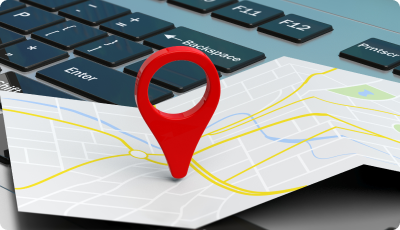Introduction
In the fast-paced world of digital innovation, QR Code Strategies for Small Businesses have risen as pivotal instruments for transformation and growth. Initially designed for tracking purposes in the manufacturing sector, QR codes have transcended their original use, becoming invaluable assets for small businesses. Their ability to forge a direct connection between the physical and digital domains has revolutionized how small businesses interact with customers. These simple, scannable codes offer a direct gateway to a wealth of digital content, from websites and social media pages to promotional videos and online menus, thus enriching the customer experience and simplifying business processes.
Embracing QR Code Strategies for Small Businesses is more than a technological upgrade; it’s a strategic move towards more innovative, more efficient methods of engaging with customers and managing various business functions. This transition to utilizing QR codes reflects a broader trend in the small business sector, where agility, customer-centricity, and digital savviness increasingly become critical drivers of success. As such, QR codes are quickly becoming an essential component in the toolkit of any forward-thinking small business in today’s digitally dominated market.
Small Business QR Code Usage: Unlocking Potential
Using QR Codes in Small Businesses marks a significant evolution in customer engagement and operational proficiency. These versatile tools have revolutionized how small enterprises interact with their clientele, making transactions smoother and more engaging. Small Business QR Code Usage is diverse and impactful – from facilitating digital menus in restaurants to offering immediate access to websites and enabling swift, contactless payments. This technological advancement has empowered small businesses to streamline their processes, offering customers a convenient and quick service experience.
The deployment of QR codes has also opened up creative avenues for businesses to present information, promote services, and track customer preferences. For instance, QR codes linked to customer feedback forms have become an efficient way to gather valuable insights, directly enhancing customer service. The success stories emerging from Small Business QR Code Usage are numerous, with businesses witnessing a marked improvement in operational efficiency and increased customer satisfaction and retention. This surge in popularity and effectiveness underscores the significant role QR codes play in the modern business landscape, particularly for small enterprises seeking innovative ways to thrive in a competitive market.
Exploring QR Code Marketing Techniques
The realm of QR Code Marketing Techniques offers an innovative and interactive platform for small businesses to engage their audience uniquely. These techniques seamlessly integrate with traditional marketing methods, bringing a new level of interactivity and excitement to promotional campaigns. For instance, using QR codes in print ads can transform a static advertisement into an interactive experience, leading customers to exclusive online content, product demonstrations, or special promotional offers.
QR Code Marketing Techniques are about linking to content and creating memorable experiences. For example, businesses can set up QR code-based scavenger hunts, encouraging customers to visit multiple locations or engage with various aspects of the brand. This drives engagement and fosters a deeper connection between the customer and the brand. Additionally, QR codes can be used to unlock special discounts or access limited-time offers, adding an element of exclusivity and urgency to marketing campaigns.
Another innovative application is integrating QR codes into social media campaigns, allowing businesses to bridge the gap between online and offline marketing efforts. By scanning a QR code, customers can be directed to a business’s social media page, increasing followers and online engagement.
The versatility of QR Code Marketing Techniques lies in their ability to be customized for various marketing goals and target audiences. Whether it’s enhancing customer experience, driving sales, or building brand awareness, QR codes offer a practical and modern approach to marketing that small businesses can leverage to stand out in a crowded marketplace.
Enhancing Business With QR Codes: A Practical Guide
Enhancing Business with QR Codes requires a carefully crafted strategy that aligns with your business objectives and customer needs. The process begins with selecting the correct type of QR code. For instance, dynamic QR codes are ideal for marketing as they can be updated without changing the code. This flexibility is crucial for businesses that need to update their offerings or messages regularly.
Once the type is chosen, the next step is designing the QR code to reflect your brand. This means customizing the color and shape and embedding a logo within the QR code to maintain brand consistency. A well-designed QR code catches the eye and reinforces brand recognition.
Integration of QR codes into your business operations can take many forms. Placing them on marketing materials, product packaging, or storefronts can effectively bridge the offline-online gap. For instance, QR codes on product packaging can link to how-to-use guides or additional product information, enhancing the customer’s post-purchase experience.
Offering exclusive content through QR codes is another way to enhance customer engagement. This could be special offers, behind-the-scenes videos, or access to premium services. Such exclusivity delights customers and encourages them to engage more deeply with your brand.
Finally, ensuring that the QR codes improve the customer journey is vital. This means placing them where they are easily scannable and ensuring they link to mobile-optimized content. For instance, QR codes in a restaurant can link to a digital menu, making it easier for customers to view and order.
By thoughtfully implementing QR codes, businesses can create more efficient, engaging, and personalized customer experiences, driving growth and enhancing customer loyalty.
QR Code Implementation In Business: Best Practices
Implementing QR codes in your business strategy requires careful planning and execution. Here are the best practices to ensure effective QR Code Implementation in Business:
Create Easily Scannable Codes
Ensure your QR codes are large enough to scan by scanned devices easily. Avoid cluttering the area around the code, and use a high-contrast color scheme for better visibility.
Strategic Placement
Place QR codes where your target audience will most likely notice and use them. This could be on product packaging, in-store displays, business cards, or print advertisements. Integrating them into areas where they naturally fit into the customer’s journey is the key.
Mobile-Friendly Content
The linked content must be optimized for mobile devices, as most QR code scans occur on smartphones. Ensure the landing pages are responsive, load quickly, and offer a user-friendly experience.
Utilize Analytics Tools
Tracking the performance of your QR codes is vital. Use analytics tools to track scans, user engagement, and conversions. This data helps understand your QR codes’ effectiveness and what changes might be needed to improve their performance.
Educate Your Audience
Sometimes, customers need help understanding QR codes. Include brief instructions or visual cues on how to scan them, especially if your target audience is more tech-savvy.
Regularly Update Content
If using dynamic QR codes, update the linked content to keep it relevant and engaging. This could include changing special offers, updating event details, or refreshing the content to maintain interest.
By following these best practices, QR Code Implementation in Business can enhance user engagement, drive sales, and build brand loyalty. It’s about combining technological innovation with user-centric strategies for maximum impact.
The Future Of QR Codes In Small Businesses
The future of QR Code Strategies for Small Businesses holds immense promise, propelled by continuous technological advancements. Here’s what small businesses can expect:
Augmented Reality (AR) Experiences
QR codes are set to become gateways to immersive AR experiences. Imagine scanning a QR code on a product that leads to an interactive AR demonstration. This technology can transform how customers interact with products, giving them a richer understanding and a more engaging experience.
Integration With Social Media
Integrating QR codes with social media platforms will likely deepen. QR codes could direct customers to a business’s social media page for exclusive content, promotions, community building, and incorporating modern social media approaches. This could increase customer engagement and brand loyalty.
Customized And Interactive Marketing
Future QR code applications may include more personalized marketing experiences. Based on user data, businesses could offer customized discounts or content, enhancing the customer experience and increasing the effectiveness of marketing campaigns.
Enhanced Payment Systems
QR codes could evolve to facilitate more secure and user-friendly payment methods. With the rise of mobile wallets and contactless payments, QR codes can simplify transactions, making them faster and more convenient for customers and businesses.
Data Collection And Analytics
Future QR codes might offer advanced analytics capabilities, providing businesses valuable insights into customer behavior and preferences. This data can be instrumental in tailoring products and services to meet customer needs better.
Interactive Packaging And Labels
QR codes on product packaging and labels could provide customers with detailed product information, user guides, or storytelling elements related to the product or brand.
Smart Inventory Management
QR codes can be used in inventory management for internal business operations, offering real-time tracking and efficient stock management.
By staying updated with these trends and integrating new applications into their strategies, small businesses can continue to leverage QR Code Strategies for Small Business for growth, efficiency, and enhanced customer engagement. The key is to remain adaptable and open to exploring these innovative possibilities.
Conclusion
QR Code Strategies for Small Businesses have evolved from a novel concept to a vital element in contemporary business strategy, and ZealousWeb understands this transformation. Their unique capability to bridge the physical and digital worlds opens up many opportunities for small businesses. This includes enhancing customer engagement, streamlining operations, and unlocking new marketing avenues.
As technology advances, the potential applications of QR codes expand, offering small businesses innovative ways to connect with customers, optimize processes, and stay competitive in an increasingly digital marketplace. Embracing these strategies positions businesses at the forefront of technological adoption and signals a commitment to staying relevant and responsive to evolving customer needs and market trends. ZealousWeb is dedicated to guiding small businesses in leveraging QR Code Strategies for Small businesses to revolutionize how they interact with the world around them.












